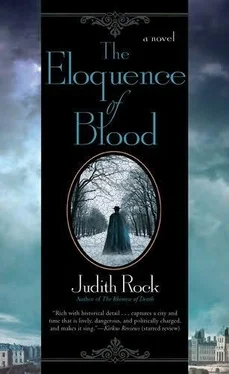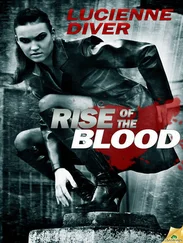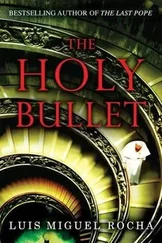Judith Rock - The Eloquence of Blood
Здесь есть возможность читать онлайн «Judith Rock - The Eloquence of Blood» весь текст электронной книги совершенно бесплатно (целиком полную версию без сокращений). В некоторых случаях можно слушать аудио, скачать через торрент в формате fb2 и присутствует краткое содержание. Жанр: Исторический детектив, на английском языке. Описание произведения, (предисловие) а так же отзывы посетителей доступны на портале библиотеки ЛибКат.
- Название:The Eloquence of Blood
- Автор:
- Жанр:
- Год:неизвестен
- ISBN:нет данных
- Рейтинг книги:5 / 5. Голосов: 1
-
Избранное:Добавить в избранное
- Отзывы:
-
Ваша оценка:
- 100
- 1
- 2
- 3
- 4
- 5
The Eloquence of Blood: краткое содержание, описание и аннотация
Предлагаем к чтению аннотацию, описание, краткое содержание или предисловие (зависит от того, что написал сам автор книги «The Eloquence of Blood»). Если вы не нашли необходимую информацию о книге — напишите в комментариях, мы постараемся отыскать её.
The Eloquence of Blood — читать онлайн бесплатно полную книгу (весь текст) целиком
Ниже представлен текст книги, разбитый по страницам. Система сохранения места последней прочитанной страницы, позволяет с удобством читать онлайн бесплатно книгу «The Eloquence of Blood», без необходимости каждый раз заново искать на чём Вы остановились. Поставьте закладку, и сможете в любой момент перейти на страницу, на которой закончили чтение.
Интервал:
Закладка:
“How did you know him?”
“Blessed Sainte Marie Madeleine,” she said impatiently, “are you truly that innocent?” Twitching her rags off the floor as though they were satin skirts, she gave the mare a last pat and crossed the stable floor to stand in front of him. “I was a whore, my handsome young cleric. When I was young, I was a very expensive whore.”
Charles surprised both of them by replying with equal boldness. “I do not doubt for a moment that you were very expensive.”
“Ah,” she said with a pleased nod, “perhaps you are not so innocent after all. Good.”
“I was a soldier, madame, before I was a Jesuit. There are no innocent soldiers. Is that how Monsieur La Reynie knows you? From your former life?”
Reine laughed softly. “Yes and no. That particular story is not mine to tell. If he wants to tell you, he will.” She put a hand on Charles’s arm. “Listen to me, maitre. I think you do not know this, and Nicolas will never say it. He needs you. Remember that.”
“You do me too much honor, madame. I came to Procope’s cafe only because my rector ordered me to follow his inquiry on the college’s behalf. I am sure you have heard the rumors about why these murders-Mademoiselle Mynette’s and Henri Brion’s-concern us.”
Reine withdrew her hand. “Do you know that he is sixty-one years old?” she said, with seeming inconsequence. “We are the same age, Nicolas and I.”
“He seems younger than that. As do you,” he added courteously. As do your eyes, he really meant.
They both looked toward the stable doors as voices rose nearby and faded.
“I will go now,” Reine said. “Can you let me out unseen?”
Charles opened the doors enough to look out. To his relief the little court was empty, and they went quickly to the gate.
“Are you going to-” Charles hesitated, not sure what to call the troupe of beggars. “To Marin?”
“Of course.”
“Do you have enough for the night?”
“Enough.”
Charles was suddenly reluctant to have her go. “The beggars seem to look to you as a mother.”
She gave him a pleased glance, slipped into the lane, and walked briskly toward the small street that ran from the rue St. Jacques past the old college of Les Cholets. As Charles replaced the bar, making sure it was strongly set, her voice floated back to him.
“Even God needed a mother, mon cher.”
Chapter 16
NEW YEAR’S EVE, TUESDAY, DECEMBER 31
The afternoon sunlight poured through the salle des actes’ long row of south-facing windows, picking out the silver buttons on composer Marc-Antoine Charpentier’s cloud-gray coat and gilding his wig’s dark curls. It also plainly showed the growing panic on M. Germain Morel’s face, as he and Charpentier and Charles stood together over the score. After today, they probably would not see much of Charpentier for several weeks, since he would be rehearsing the singers in the college calefactory, the warming room where there was always a fire. Looking at the composer, Charles was glad he would be warm. Charpentier, so Charles had heard, had never quite recovered from an illness several years ago, and his aquiline nose stood out like a hawk’s beak from his thin face and hollow cheeks.
Morel had come well through Pere Jouvancy’s questioning at the beginning of the rehearsal, and Jouvancy had hired him on the spot as the new dancing master. But now, with Charpentier racing through the tragedie lyrique’s score, his dark eyes glowing as he sang and hummed dance music, Morel was clearly having second thoughts. He looked sideways at Charles in silent appeal. Not that the lyrical tragedy had many dances. Even half somnolent in the flood of sunshine, Charles was realizing that the piece was, in fact, a true opera, and that the singers would work far harder than the dancers. Charles decided to perjure himself a little for the sake of art and the new dancing master’s sanity. He smiled apologetically at the composer and gathered his forces to make himself heard over the noise Jouvancy and his actors were making on the stage at the far end of the room.
“I beg your pardon, Monsieur Charpentier,” Charles said. “But could you possibly help my confusion by going a little slower? I confess I am no musician.”
Behind him, a student-Montmorency, he thought-sniggered audibly.
Charpentier looked at Charles in surprise. “Slower? Of course, maitre, forgive me!”
To his credit, he really did slow down. Morel’s shoulders dropped to where his tailor had meant them to be and he started breathing again. Charpentier had composed new dance music, and Morel would create new dances to go with it. A dance and its music were one entity and usually inseparable. Morel would then learn the music so that he could play the dances on his pocket violin at rehearsals. Charles’s role was to be the overall dance director, matching dancers and dances, choosing costumes, and generally supervising the dance part of the production. As time went on, he would probably also direct some rehearsals himself to reduce the cost of the dancing master’s hire. All of the above would, of course, be subject to Jouvancy’s approval, since he was not only director of the spoken tragedy but overall director of the whole performance. Then beginning in February, the singers would move to the salle des actes, where everyone would rehearse and shiver together.
“There!” Charpentier handed Morel copies of the dance music. “A simple score, as you see. We will do excellently well together.” The composer smiled benignly at the dancing master and Charles. “Now I must go to my singers.” He nodded at Pere Bretonneau, author of the sung tragedy’s lyrics, who was waiting patiently beside the door to conduct him to the calefactory. “I will come from time to time to see how you progress,” he said to Charles and Morel. “Or come and ask me anything you please. And get warm at the same time!” Charpentier bowed to them, gathered up the score’s pages from the wide windowsill, bowed toward the busily oblivious Jouvancy on the stage, and inclined his head to the dancers. “I wish you all a bonne annee!”
Somewhat belatedly, Charles joined Morel in wishing the composer a good year in return. Watching Charpentier’s springy step as he left the room, Charles suspected that he might be nearly as good a dancer as he was a musician.
Startled that he’d forgotten about New Year’s Day, Charles gazed absently at the bright fall of sunshine on the wide floorboards. A new year that Martine Mynette and Henri Brion would not see. While somewhere, their killer-or killers, supposing that two killers were still possible-might be wishing unsuspecting friends a good year and receiving good wishes in turn.
Morel’s eyes on him called Charles back to himself. He sent the boys to mark out a stage with their hats.
“We begin,” Charles said to Morel. “Are you ready?”
Morel swallowed, clutching the sheets of music to his chest. “With the help of Saint Genesius and Saint Guy.” Genesius was the actors’ patron who also spared a thought for dancers, and St. Guy-called St. Vitus in some places-cured the strange twitching sickness called St. Vitus’s Dance.
“Don’t forget the ancient goddess of dance, Terpsichore. We’re classicists here, after all,” Charles laughed.
“Terpsichore, by all means. It’s just that I never dreamed of working with anyone as famous as Monsieur Charpentier. He was eighteen years composer for Mademoiselle de Guise, for her troupe of musicians, The Guise Music! Did you know that?”
“Yes, I did know. Well, into the fray, Monsieur Morel.”
The dancers were arguing hotly on their marked-out stage.
“This Charpentier is nobody and he didn’t bow to me,” Montmorency said loudly, his left hand resting on his hip, where his sword would normally be.
Читать дальшеИнтервал:
Закладка:
Похожие книги на «The Eloquence of Blood»
Представляем Вашему вниманию похожие книги на «The Eloquence of Blood» списком для выбора. Мы отобрали схожую по названию и смыслу литературу в надежде предоставить читателям больше вариантов отыскать новые, интересные, ещё непрочитанные произведения.
Обсуждение, отзывы о книге «The Eloquence of Blood» и просто собственные мнения читателей. Оставьте ваши комментарии, напишите, что Вы думаете о произведении, его смысле или главных героях. Укажите что конкретно понравилось, а что нет, и почему Вы так считаете.












